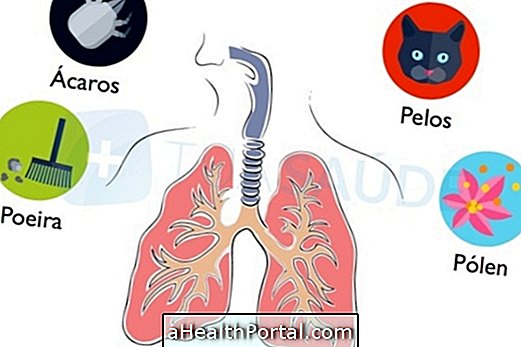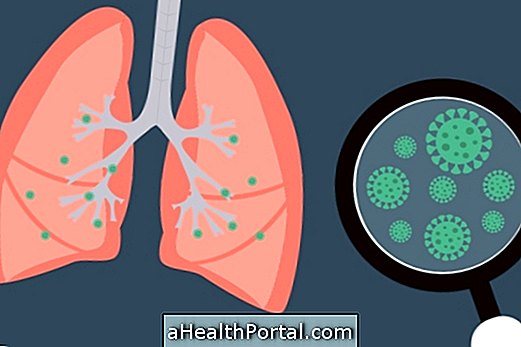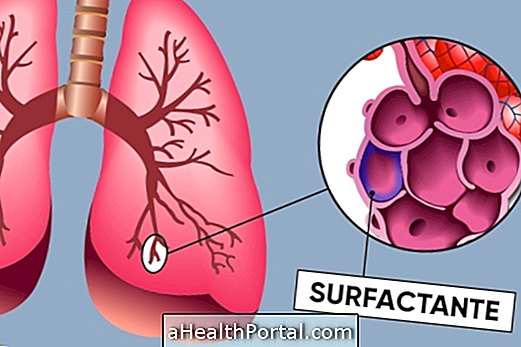Asthma is a disease that is mainly caused by allergies that affect certain people and therefore, the person is born with asthma but the disease can manifest at any stage of life.
The most common is the child presenting with symptoms such as difficulty breathing, wheezing whenever he breathes and is near animals such as cat or dog, cigarette smoke or in a very dusty place. But there are also cases where the person only shows the symptoms of asthma years later when he needs to work in a place that has a lot of dust, wood dust or spray paints, for example.
There is no specific cause that causes asthma and, therefore, asthma has no cure. However, by avoiding all these factors and following physician-directed treatment that generally includes the use of bronchodilator and anti-inflammatory remedies, it is possible to control the disease and prevent asthma attacks.

Main causes of Asthma
The causes of asthma are related to genetic and environmental factors that interact, causing the disease. Some of the factors that can cause bronchial asthma include:
- Asthma cases in the family because if the father or mother has asthma, there is a 50% chance the baby also has;
- Having allergic disease such as eczema, any food allergy or hay fever;
- Frequent contact with allergy-causing substances such as pollen, mites, animal hair, cockroaches, mold, moisture or chemicals on carpets or coating materials;
- Contact with irritating substances in the air such as cigarette smoke, chemical vapors and air pollution;
- Use of medications such as some non-steroidal anti-inflammatory drugs such as aspirin or ibuprofen, beta-blockers or antibiotics;
- Consumption of food containing additives such as sulfites, such as concentrated fruit juice, jams, shrimp and processed foods;
- Environmental factors such as sudden changes in temperature, cold air, wind, thunderstorm, poor air quality and hot, humid days;
- Vigorous physical activity like running or swimming. Learn more about exercise-induced asthma;
- Preterm birth or smoking mother during pregnancy.
The individual who has a higher risk of developing asthma in adulthood is the person who has the asthma gene and works in places where they are regularly exposed to these substances that can cause allergy at work. The professions that are generally associated with the risk of occupational asthma are paint sprayers, bakers and confectioners, nurses, chemical industry workers, animal handlers, welders, food processing workers and those working with wood.
How to prevent Asthma attacks
In order to control asthma, avoiding the onset of seizures where the symptoms manifest very frequently, it is important to follow the treatment indicated by the pulmonologist using the medicines to keep bronchial inflammation in control, such as corticosteroids. Whenever you feel short of breath you also need to use the 'asthma bomb' which contains a bronchodilator to facilitate the entry of air into the lungs. See which remedies can be used.
In addition, care must be taken to keep the house and workplace clean and with windows open, air circulating freely, animals not indoors, no carpets or curtains in the room, but if they are really necessary, wash them at least every 15 days, and change sheets and pillowcases weekly.
























